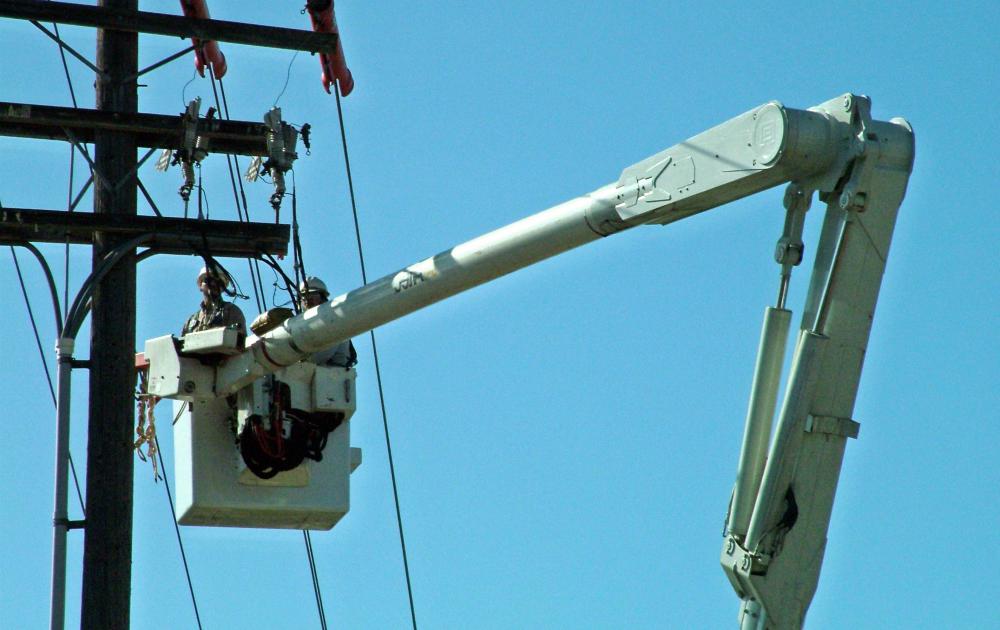At EasyTechJunkie, we're committed to delivering accurate, trustworthy information. Our expert-authored content is rigorously fact-checked and sourced from credible authorities. Discover how we uphold the highest standards in providing you with reliable knowledge.
What are Rolling Blackouts?
Rolling blackouts are deliberate power cuts which are designed to reduce the load on an electricity generation system and grid. They usually result from a situation where demand outstrips supply, but they can also be caused by power production problems, fuel shortages, and antiquated systems. Many developing nations struggle with rolling blackouts. Nations with reliable power infrastructure are not exempt from rolling blackouts; in periods of peak demand, power operators may be forced to cut power.
Because a rolling blackout is deliberately engineered, it is less likely to damage the overall power grid than an unexpected power outage. Power companies treat rolling blackouts as a method of last resort, and they try to cut power to as few customers as possible. Depending on the region of the world, rolling blackouts may last for around an hour, or they may last for eight or nine hours; in developed countries, many power suppliers will not cut power for more than 90 minutes.

Typically, independent monitors keep track of the power grid. As they notice spikes in power demand, they may make public announcements, asking consumers to cut down on power use to avoid rolling blackouts. If energy reserves dip below a certain level, the monitor will require rolling blackouts or in some cases brownouts, which only partially cut power. The blackouts are “rolling” because they roll from section to section of the system, ensuring that mass power cuts do not happen. Once the energy crisis has been stabilized, power is restored to the whole grid.

Typically, power consumers are broken up into prioritized outage blocks. These outage blocks are widely distributed across the power grid, to ensure that a large community will not experience a complete power failure. This is primarily for safety reasons; periods of extended power outage have been associated with crime and looting. In addition, the isolated outage allows people to go to the homes of friends and neighbors with electricity while the power is out. Typically hospitals, police stations, and other vital infrastructure are assigned a special outage block, and the power company will not deliberately cut power to this outage block at any time.

Knowing your outage block can be useful, as it may help you plan ahead for an outage. Most energy generation companies print your outage block on your power bill. The number of your block can help you predict when your power will be cut; most energy generation companies provide up to date information on grid status, including which blocks will be cut in the event of high demand. In California, a state famous for rolling blackouts, the only block exempt from an outage is Block 50.
If you rely on electricity to run medical devices, you may be able to request special notification when your area is scheduled for an outage, so that you can make alternate arrangements. If you are elderly or disabled, you should also find out about cooling shelters for hot weather, as rolling blackouts often occur during periods of high demand for air conditioning. Hot weather can be deadly, which is why many communities offer air conditioned facilities during rolling blackouts for the benefit of public health.
Restoration of power after a rolling blackout can still damage appliances, just as restoration after an unscheduled blackout can. You should make sure that electrical devices such as computers are turned off during a rolling blackout, and turn appliances on slowly after a rolling blackout to avoid power surges. You should never plug a generator into the wall during a power outage, as it can send high voltage current through the power grid, potentially seriously injuring utility workers.
AS FEATURED ON:
AS FEATURED ON:













Discussion Comments
Fortunately for me, I'm on the same grid as our main hospital, so if there are ever any planned rolling blackouts, my power usually comes back very quickly. I can't say the same for rolling brownouts, however. Sometimes the hospital will fire up their back-up generators while the rest of us wait for the rolling brownout to end.
About the one time we'll hear the term "rolling blackouts" around here is during a summer heatwave. There are times when the temperature stays above 100 degrees for a week, and everybody runs their air conditioners 24 hours a day. The local news stations will start telling people to cut back on their air conditioning usage or else we'll have rolling blackouts or brownouts.
Most of the time, the heatwave snaps and the electricity crisis is over, but once in a while we'll lose power for about an hour or two. It will go from grid to grid, like a wave.
Post your comments